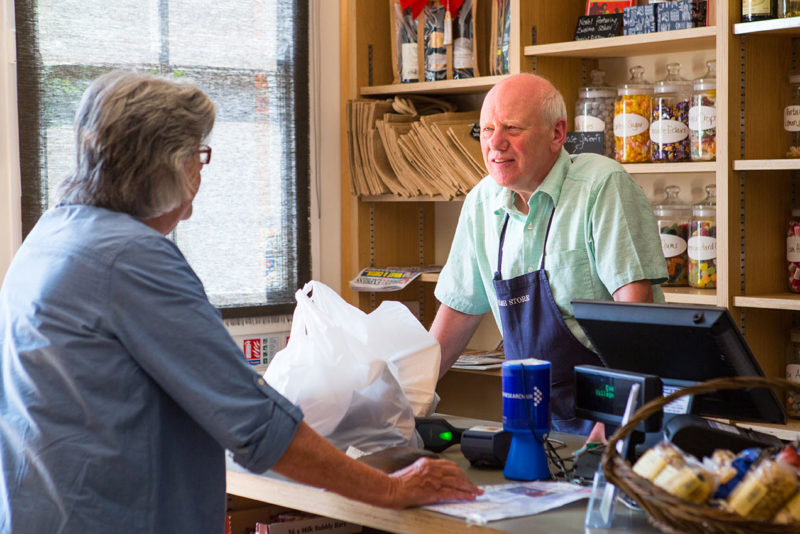Chris Cowcher, Plunkett’s Head of Policy & Communications, provides a response to the Queen’s Speech
Whilst the sight of Prince Charles delivering the speech to mark the State Opening of Parliament earlier this week; in place of the Queen, offered a unique sight for spectators of this grand ceremony there wasn’t actually much else that was “new” (or unexpected) in terms of what was announced. The list of 38 bills whilst impressive in number have also faced some questioning as to whether they go far enough, to truly achieve the ambitious agenda that this government has set itself in terms of Levelling Up, Regeneration and achieving the Net Zero targets. The apparent willingness by government to trial new approaches and commit to more community power (through devolution) should however be applauded.

The cost of living crisis was the backdrop for Tuesday’s grand event. It continues to be a point of concern for so many yet no further direct support was actually included in the announcements or details since. No one can doubt the investments that have been made by government to support residents, employees and businesses in response to the unprecedented times we have all endured over the last 2 years. However there are clearly significant ongoing needs and the calls for further support in response to the cost of living will not go away.
From a Plunkett point of view, we know that the provision of and access to local services will play an important part for many looking to manage limited household budgets. Therefore the community businesses that we are proud to represent need to be supported with new and ongoing investment, to not only grow the sector (in size) but also to sustain the current network that are serving people right now.
For the rural community business sector and our membership there were parts to be welcomed in the speech, even if once again the mention of anything “rural” was noticeably absent from all that was announced.
A central point of interest for community businesses will be the presentation of the Levelling Up and Regeneration Bill, which provides further detail in support of the White Paper released earlier this year. This bill has a relevance in England and Wales, with the majority of its application being in England.
The statutory duty to publish an annual report on the 12 missions for Levelling Up is positive news and commits the government to reporting on what actions they are taking. However, Plunkett Foundation and our partners from the Rural Coalition will hope that this process runs concurrently with the government’s commitment to ‘rural proofing’ and in association with the annual reporting process that evidences this work too. As we have raised previously there is a genuine concern that much of the Levelling Up agenda could be delivered without addressing the inequalities that exist in the countryside, therefore rural proofing any action taken is vital.
An opportunity to collaborate with parish councils?
Whilst a lot of the media coverage about the Levelling Up and Regeneration Bill appears to have focused on that sections covering “housing design”, the commitment to further support Neighbourhood Plans is something we welcome. These documents, which provide a community view on what local development is needed in their area, often also contribute to and support the development of community-owned business projects too. Furthermore the inclusion of proposed amendments for the way Community Infrastructure Levy funding is to be distributed should be something of interest to our network. There is a commitment to create a “neighbourhood share” and provide funding directly to parish and town councils to use locally. In our eyes this presents a huge opportunity to build on our previous work with NALC, which seeks to see more collaboration between local councils and community businesses.
We need a Community Right to Buy
In terms of legislation, the review of compulsory purchase law will be welcomed by many, as will the implementation of rental auctions to address vacant units on the high street in more urban and built up areas. Plunkett will use these announcements as an opportunity to highlight that such powers are also needed in rural communities too. We believe that local residents should be supported to bring assets of local value and importance in to community-ownership and make sure that vacant buildings in rural areas, such as pubs for example, are not left to simply go to ruin (and then on to development thereafter). We have long called for there to be a Community Right to Buy, in all 4 UK nations (such a Right already exists in Scotland) and we hope that the forthcoming Strategy for Community Spaces and Relationships – a further commitment from the Levelling Up White Paper – will help to us to amplify these calls on behalf of our membership in due course.
No “new” money but some funding available
Once again some will point to there being “no new money” attached to the Levelling Up and Regeneration Bill, however there are some opportunities for community businesses to be aware of. The Community Ownership Fund will shortly be relaunched, with a revised prospectus expected week commencing 23 May 2022 and the next application round opening two weeks later – on or around 6th June 2022. Plunkett Foundation will be doing a briefing with our members in the coming weeks, so please do keep an eye for that to help you prepare to make an application. Furthermore details have now been shared about the UK Shared Prosperity Fund and we hope that there will be opportunities for community-owned businesses to connect with local authorities in their area, who will be responsible for these post-Brexit funds in future.
Transitioning to Net Zero
Finally, it was a surprise that there was nothing to support or encourage community energy generation in the Energy Bill announced on Tuesday. There was also no apparent recognition that for many living and working in the countryside that they have some of the hardest to heat and therefore most expensive properties to manage. Plunkett supports the calls being made by partners such as Action with Communities in Rural England that more investment is needed as this is a genuine concern for many rural businesses, as we transition to a Net Zero economy. Whilst community-owned business are often committed to the principle of lower carbon operations many will need funding support to fully transition to greener energy use in future – with the cost of updating heating systems currently prohibitive for many due to the age or make-up of the building they operate from.
The reality is that community-owned businesses continue to be such an important local resource for so many right now. Building on these businesses being a lifeline for many during the pandemic, they now stand at the forefront of supporting their local residents battling to manage their living costs.
Plunkett Foundation will continue to do all we can to help community businesses UK-wide and we will continue to represent the interests of our members with government, funders and other stakeholders and policy makers.
Please do keep in touch and let us know how your business is managing. You can contribute to our advocacy and representative work too by contacting Georgina Edwards, our Research and Policy Manager.





